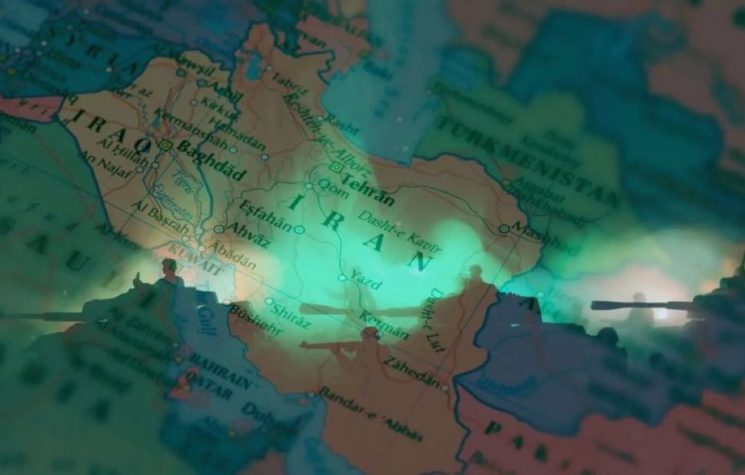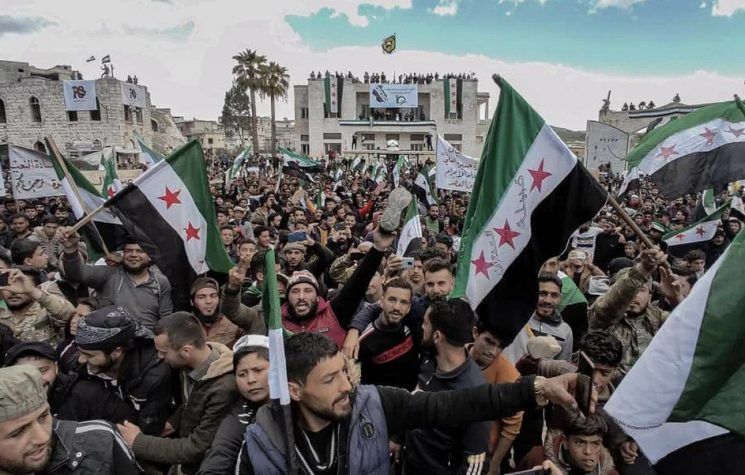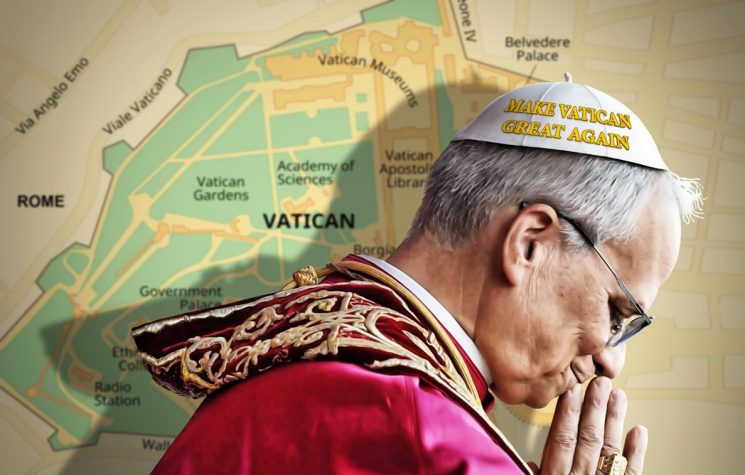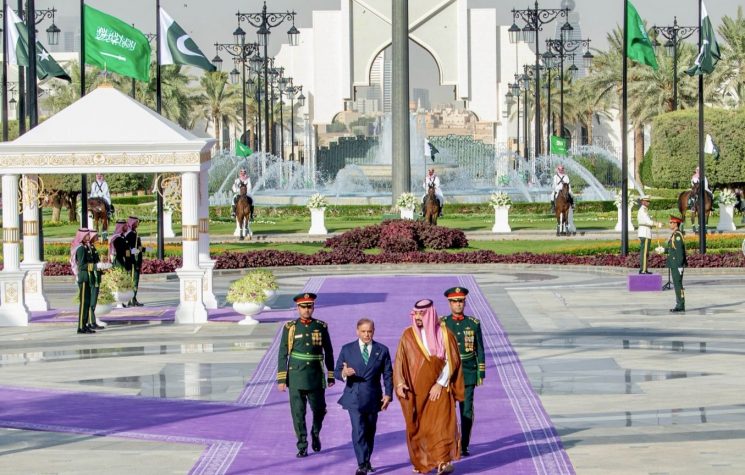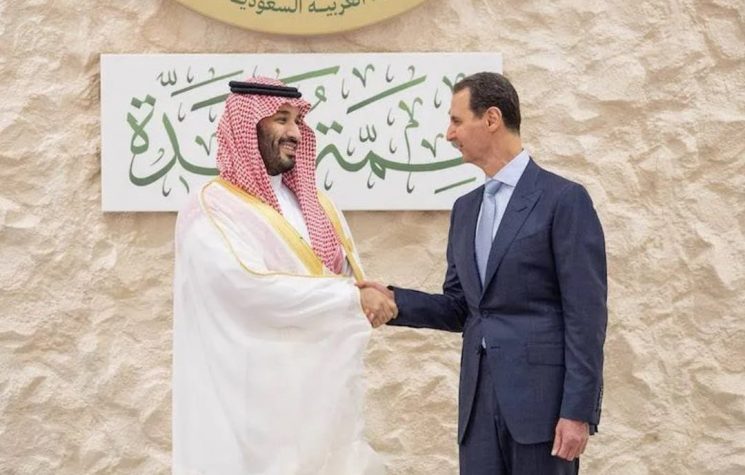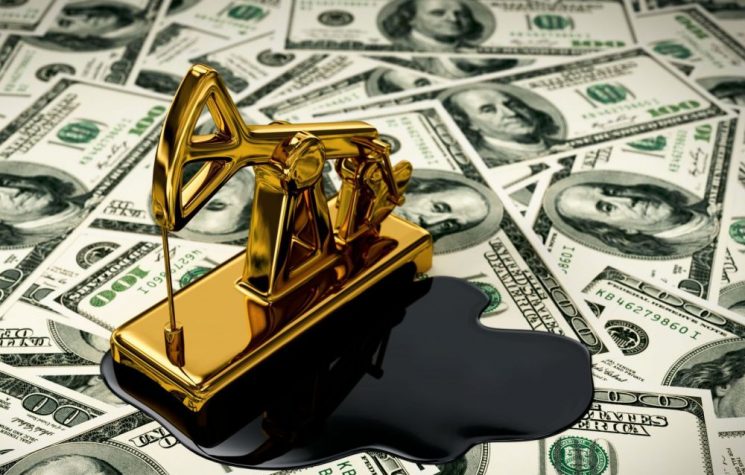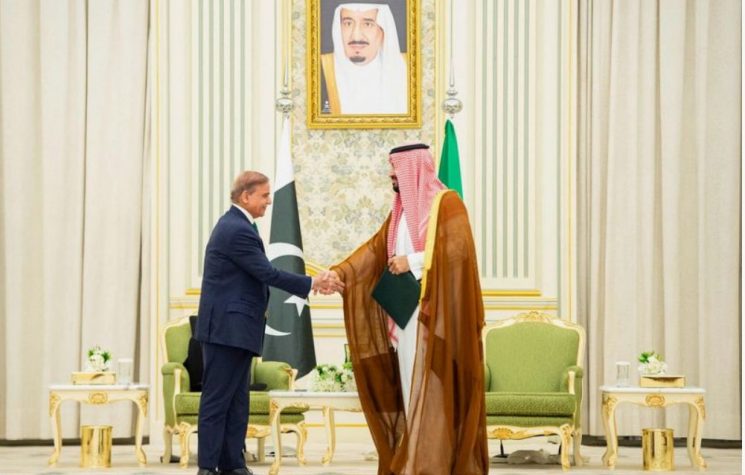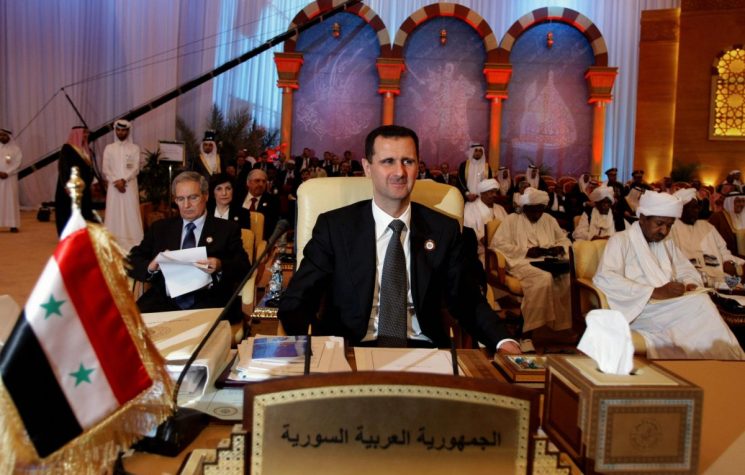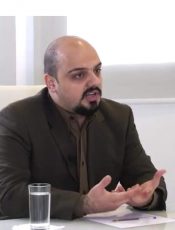Foreign ministers from Arab League member states voted in Cairo on Sunday to return Syria to the brotherly diplomatic league.
Syria has been reinstated as a member of the Arab League, which will meet on May 19 in Riyadh. After a 12-year absence, Syria is in the midst of an Arab-led political path to normalization in the region. The regional powerhouse, Saudi Arabia, and the vision of Crown Prince Mohammed bin Salman have taken center stage in diplomatic resolutions to persistent crises.
Foreign ministers from Arab League member states voted in Cairo on Sunday to return Syria to the brotherly diplomatic league.
Damascus has been the site of normalization efforts recently. Jordan has put forth an initiative to reach a peaceful political settlement to the conflict in Syria. Western-backed uprisings and conflicts have plagued the Middle East and continue. However, there are winds of change blowing across the desert sands, and the regional actors are rejecting the status quo.
The U.S.-NATO attack on Syria for regime change involved Arab and Western nations as participants, but the plan failed. The armed conflict planned and executed by President Obama, and Vice President Biden killed thousands and displaced millions.
Following the February 6 earthquake in Syria and Turkey, restoration ties with Damascus began with a huge Arab humanitarian response, including the UAE and Saudi Arabia, which set up an air bridge for much-needed help for victims of the quake.
The Chinese-brokered re-establishment of ties between Saudi Arabia and Iran was a political earthquake in the region and gave the indication that Crown Prince Mohammed bin Salman was looking to establish peace and prosperity in the region, and was veering away from Western interference which has been the source of unrest.
Saudi Foreign Minister Prince Faisal bin Farhan Al Saud visited Damascus on April 18 for the first time in more than a decade, with the two countries also restoring embassies and flights between them.
Syrian Foreign Minister Faisal Mekdad visited the Kingdom just days before Prince Faisal visited Damascus, on the first such trip since 2011.
Foreign Embassies in Damascus
Damascus hosts 44 embassies, and in addition, there are 51 consulates. Many had closed during the conflict as Western nations and their Arab allies aligned themselves against Syria in their failed effort to remove the secular government, and instead place a Muslim Brotherhood member as the U.S. ally in Damascus.
Some European countries never closed their embassy doors in Damascus, such as Austria, Czech Republic, Greece, Holy See, Romania, Serbia, and Sweden.
Several Arab embassies also are open in Damascus, such as UAE, Bahrain, Sudan, Yemen, and Oman. Saudi Arabia and Tunisia have said they will open their embassies soon in Damascus.
Experts expect more embassies will dust off their desks and reopen as Damascus springs back to life after more than a decade of isolation.
Syria and Saudi Arabia support the Palestinian cause
Restoring the rights, and land to the Palestinian people has long been a pillar of the Syrian position. Saudi Arabia also has stressed the rights of the Palestinians and Palestinian President Mahmoud Abbas visited on April 18 and met with Crown Prince Mohammed bin Salman to discuss recent developments in the Palestinian-Israeli conflict.
Saudi Arabia denounced the Israeli storming of the al-Aqsa mosque compound on April 5, and rejected actions “that undermine peace efforts and contradict international principles in respect of religious sanctities.”
Saudi-China relations
King Salman bin Abdulaziz approved a Memorandum of Understanding (MoU) that granted Saudi Arabia the status of a dialogue partner in the Shanghai Cooperation Organization (SCO) on March 28.
The SCO is a Eurasian political, economic, international security, and defense organization. Members include India, Kazakhstan, Kyrgyzstan, Russia, Tajikistan, Pakistan, and Uzbekistan, with Iran set to join soon.
Saudi Arabia has depended solely on the U.S. for decades but now is opening their horizon to other partners as the Kingdom marches toward fulling its Vision 2030.
Saudi OPEC decisions
Saudi Arabia and other OPEC+ oil producers announced voluntary cuts to their production on April 2. Riyadh said it would cut output by 500,000 barrels per day from May until the end of 2023.
When U.S. President Joe Biden visited Crown Prince Mohammed bin Salman he asked him to increase oil output, to drop the price of gasoline to American consumers. Instead, the decision was made to remain at the level decided upon previously by OPEC. This decision disappointed Biden, but after Biden had made seriously false accusations against Crown Prince Mohammed bin Salman in the past, it came as no surprise.
In the last two months, Saudi Arabia’s Crown Prince and top diplomats held high-level meetings with officials from the U.S., Iran, Netherlands, Egypt, and China. These meetings helped to mark the Kingdom’s diplomatic position in the Arab world and cement Riyadh’s position internationally as a powerhouse in the Middle East.
Looking forward while looking back at the Syrian conflict
In December 2012, the fourth conference for the “Friends of the Syrian People” opened in Morocco, with participation by more than a hundred government delegates, including from the U.S., France, Britain, and the Gulf countries.
The U.S.-NATO attack on Syria beginning in March 2011 for regime change, created the “Syrian National Coalition” (SNC) which over the years has been hosted by Turkey, and Qatar at the direction of the U.S. The Syrian government in Damascus was deemed illegitimate, and the SNC was given full political recognition at the 2012 meeting in Morocco, as the sole legitimate representative of the Syrian people.
The SNC had an armed wing, also created by the U.S. through their CIA program, Timber Sycamore, which trained, funded, and armed men following the Muslim Brotherhood ideology, to establish an Islamic State in Damascus, similar to the U.S. project in Egypt which successfully installed Mohammed Mursi, before he was rejected by the Egyptian people.
The Free Syrian Army
In 2012, Daniel Wagner wrote from Washington on HuffPost about the dark and evil side of the U.S.-backed FSA. He explained how the U.S. and Western media were glorifying the FSA as ‘freedom fighters’ while turning a blind eye to war crimes and atrocities they committed. The Western mainstream media played a huge role in brainwashing the American and European public.
Aleppo, the industrial capital of Syria, was finally turned into a war zone, and as Wagner explains, “The primary reason Aleppo was attacked by the FSA is that it was and remains supportive of the government. In response, the FSA has been acting more like a force opposed to the citizens of Syria than a force intended to secure their freedom. For example, it has in the recent past stolen wheat reserves intended for the residents of Aleppo and sold them to private Turkish grain traders, expropriated stocks of pharmaceuticals and forcibly resold them back to their owners, and ransacked schools. These are hardly the actions of a ‘liberation force.’”
Over the years, the FSA became extinct, and their partner Al Qaeda finally morphed into ISIS. The U.S. and NATO were left supporting outlawed terrorists, who they claimed they were fighting in Iraq and Afghanistan, but not in Syria.
Idlib remains the last terrorist-controlled province held by Hayat Tahrir al-Sham, formerly called Jibhat al-Nusra, formerly called Al Qaeda, led by Mohammad al-Julani, formerly of ISIS. This is the man the U.S. continues to support.
The U.S. sidelined in the Middle East
Bill Burns, the head of the CIA, arrived in Saudi Arabia in April amid developments placing Crown Prince Mohammed bin Salman in the driver’s seat of political developments in the Middle East. No longer willing to be a passive actor taking cues from Washington, but instead sitting in the director’s chair.
The U.S. has condemned the Arab League vote to reinstate Syria and has said they remain opposed to any rebuilding of homes in Syria and opposed to the Syrian people abroad returning to their own homes.
The U.S. and NATO successfully removed Libyan leader Muammar Gadhafi. He will be forever remembered while sitting at the Arab League round table, denouncing the directives each participant received from Washington, DC., and issuing a prophetic warning that one day the U.S. would be attempting to remove each leader sitting at the table. His speech was reacted to by laughter, but no one is laughing now.












